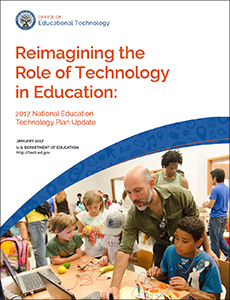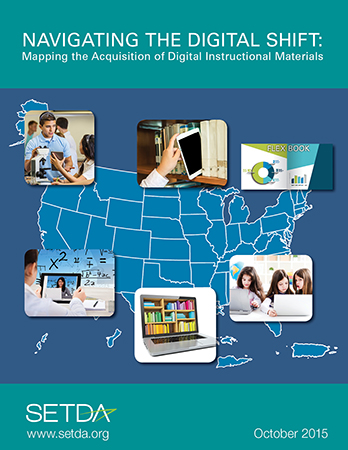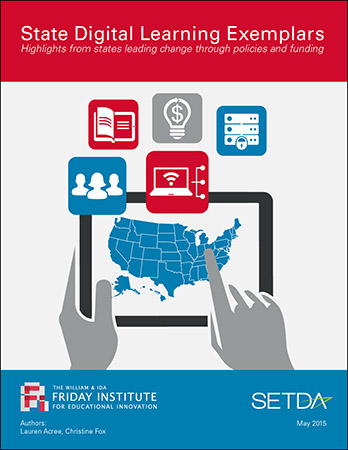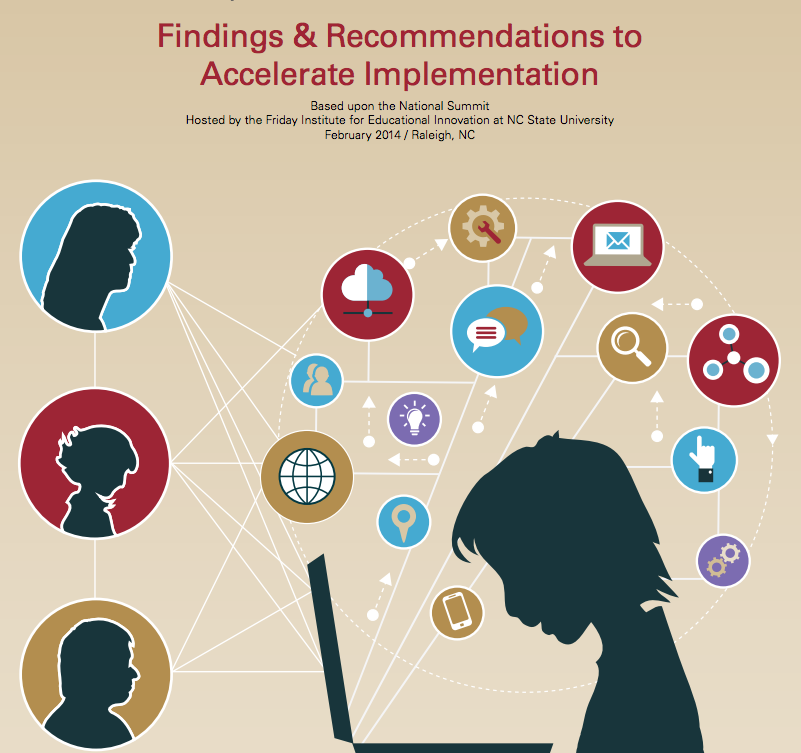
2017 National Education Technology Plan (NETP)
The National Education Technology Plan articulates a vision of equity, active use, and collaborative leadership to make everywhere, all-the-time learning possible.

The National Education Technology Plan articulates a vision of equity, active use, and collaborative leadership to make everywhere, all-the-time learning possible.


Navigating the Shift provides an analysis of state policy trends related to digital instructional materials, essential conditions for implementation, an update on the states’ progress towards SETDA’s Out of Print recommendations and highlights several next steps for consideration as leaders move to advance the learning experiences in the digital age.

SETDA and the Friday Institute for Educational Innovation at NC State University College of Education co-released the national report, State Digital Learning Exemplars: Highlights from states leading change through policies and funding. States are striving to support the expansion of technology tools and resources in K12 education through state policies, programs and funding in order to provide digital learning opportunities for all students.

Last year, over 100 education leaders attended the Technology-Enabled Personalized Learning (TEPL) Summit hosted by the Friday Institute for Educational Innovation at NC State University in collaboration with Digital Promise, the Software & Information Industry Association (SIIA), and the Michigan Association of Intermediate School Administrators (MAISA). This convening was unique in that the leaders included similar representation from industry, associations and nonprofits, and university and K-12 educators. Together, they compared experiences, discussed common challenges and barriers, explored case studies, and identified potential solutions and models that all must be addressed collectively to scale the implementation of personalized learning through technology.
We are excited to announce that their suggestions are now available in a final report titled Technology-Enabled Personalized Learning: Findings and Recommendations to Accelerate Implementation.
This report provides an overview of state technology literacy definitions and educational technology standards.

This paper complements SETDA’s prior digital transition policy briefs by examining strategies for ensuring digital content quality, including exploration of the specific quality-control challenges and opportunities associated with open educational resources (OER). Specifically, this paper describes: 1) digital content’s unique characteristics; 2) traditional state/district instructional materials quality-review practices; and 3) recommendations to inform/strengthen state strategies for ensuring digital resource quality.